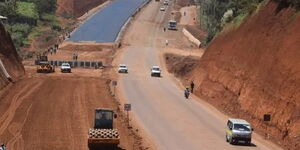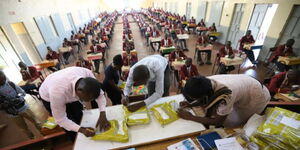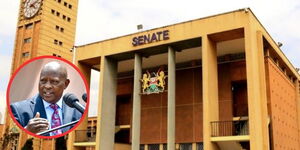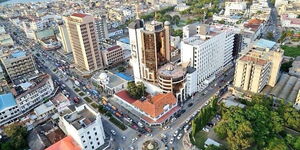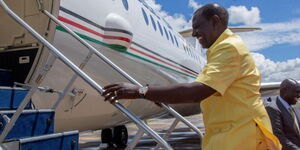As Kenya marks 61 years of self-rule, the country grapples with a lingering shadow from its colonial past: the British Army Training Unit Kenya (BATUK) in Nanyuki. Over the past decade, mounting allegations of abuse by British soldiers stationed there have ignited fierce debates, investigations, and demands for justice, threatening to unravel the complex relationship between Kenya and its former coloniser.
Kenya’s history with Britain is murky and full of twists. However, in recent years, the former coloniser has found herself with her back against the wall over the rising cases of abuse alleged to have been committed by its soldiers based in Nanyuki.
Despite Britain’s promises to collaborate with Kenyan authorities, justice remains elusive.
Members of Parliament have, for the second time in two years, launched investigations into allegations of abuse by the British army, which MPs say could have significant implications for the future role of UK troops in the country.
In 1964, a year after Kenya gained independence from Britain, the two countries signed a defence agreement allowing British infantry battalions to conduct training exercises in Kenya. This arrangement, now an annual event, has seen the BATUK swell to around 100 permanent staff and an additional 280 personnel on short tours.
The current investigation aims to scrutinise the activities of BATUK, whose soldiers face accusations of murder, sexual abuse, and environmental damage near its base in Laikipia.
The latest investigations by the Defence Committee of the National Assembly stem from a petition by the Kenya National Commission on Human Rights (KNCHR).
In March, KNCHR reported to the committee that it had received 43 complaints of human rights abuses – including murder and rape – allegedly committed by BATUK personnel. Among these, the 2012 murder of Agnes Wanjiru stands out, a case expected to be central to the parliamentary review.
Wanjiru, a 21-year-old mother, was last seen with British soldiers at a hotel near the barracks. Her body, discovered in a septic tank with stab wounds, prompted a 2019 inquest that implicated British soldiers in her death. Yet, despite the inquest’s findings, no one has been charged.
The 2012 murder of Agnes Wanjiru was initially overlooked until a 2019 investigation. Findings were not made public, and a 2021 report by the Sunday Times revealed a British officer’s confession to killing the young mother. This revelation reignited Kenyan police interest, but Wanjiru’s family continues to demand serious action and the prosecution of the responsible soldiers.
Claims of unexploded bombs left by the British army, dangerous chemicals from training drills, and persistent sexual abuse allegations are also under examination. In one poignant testimony, Memusi Lochede described how her daughter, injured by a British army truck in 2019, received two years of hospital bill coverage but no promised compensation.
A 2021 fire, allegedly started by British soldiers during training, affected over 7,000 locals, many of whom are seeking legal action. The inquiry has exposed deep-seated frustrations and demands for accountability.
Testimonies
During the hearings held outdoors under a marquee in Archers Post, where the British army conducts infantry exercises, poignant testimonies unfolded, shedding light on the human toll of alleged abuses. Memusi Lochede, a 45-year-old mother, recounted the harrowing ordeal her family faced after her 22-year-old daughter, Chaula Memusi, was allegedly injured by a British army truck in a hit-and-run incident in January 2019.
"They sent a representative to tell me that they don’t want a court case and that they would take care of my daughter," Ms. Lochede testified, her voice trembling with emotion. She detailed how they had covered her daughter’s hospital bills for two years, expecting the compensation promised by British officials, only to be left empty-handed.
Lino Lemaramba, who witnessed the accident, provided a chilling account of the aftermath. "It was a Batuk truck, I tried to stop it but it kept moving," he alleged. Describing the scene as "tragic," Lemaramba recounted the horror of seeing Chaula Memusi grievously injured, with "blood all over" and her "bones crushed."
Generica Namoru, accompanied by her five-year-old daughter, delivered another heart-wrenching testimony. She shared her experience of becoming pregnant during a consensual relationship with a British soldier stationed at Batuk. However, when she informed him of her pregnancy, he abruptly ended the relationship and left Kenya, leaving her to raise their child alone. "All I want is child support so that my child can go to school and have [a] better future," she implored, her voice trembling with emotion.
The hearings also heard evidence from individuals who suffered serious health problems following a fire allegedly started by British soldiers during a training exercise at a wildlife sanctuary in 2021.
Financial Gains
Kenyans have seen mixed results from previous litigation. In 2013, 5,228 Mau Mau veterans were awarded £20 million from the British government for abuses suffered during colonial rule. Nearly a decade later, many are still waiting for their compensation.
Similarly, 1,274 nomadic herders who were injured by unexploded bombs left behind by British troops received £5 million in the 2000s, but many now struggle with poverty and alcoholism.
Despite the controversies, the Kenyan government highlights the economic benefits of BATUK’s presence, which provides 3,000 jobs and contributes $45 million to the economies of Isiolo, Laikipia, and Samburu.
A spokesperson for the British High Commission in Kenya expressed their intent to cooperate with the ongoing inquiry, stating, “The UK-Kenya defence partnership is one of the great strengths of our relationship and our joint training and operations with the Kenyan Defence Forces are keeping both Kenyan and British people safe.”
Way Forward
The report of the committee will be crucial when talks for the renewal of the Defence Cooperation Agreement (DCA) come.
In 2015, former President Uhuru Kenyatta threatened to sever ties with the British soldiers over alleged claims of abuse, but his administration caved into pressure and assurances of accountability.
Could Kenya force the closure of the camps? This remains to be seen. However, the financial support and training that Kenya Defence Forces receive as part of the deal for the stay of the British soldiers is a crucial component for any decisions to be made.
Furthermore, what the expulsion would mean for the bilateral relations between Kenya and Britain would be seismic.
The move to close the BATUK looks unlikely, however, Kenya could seek more control and tightened measures of accountability for the soldiers.

